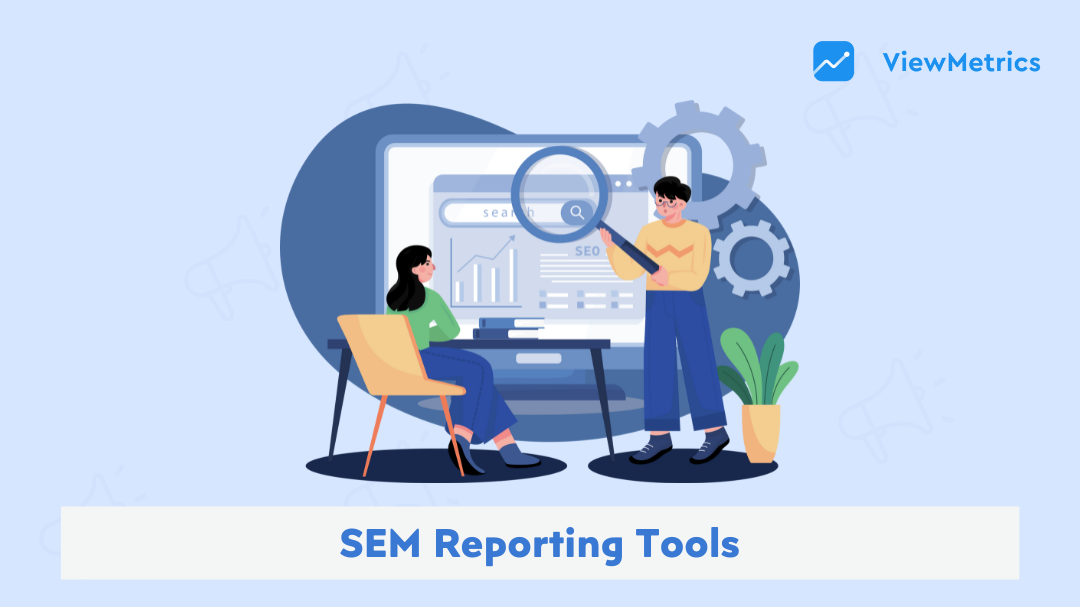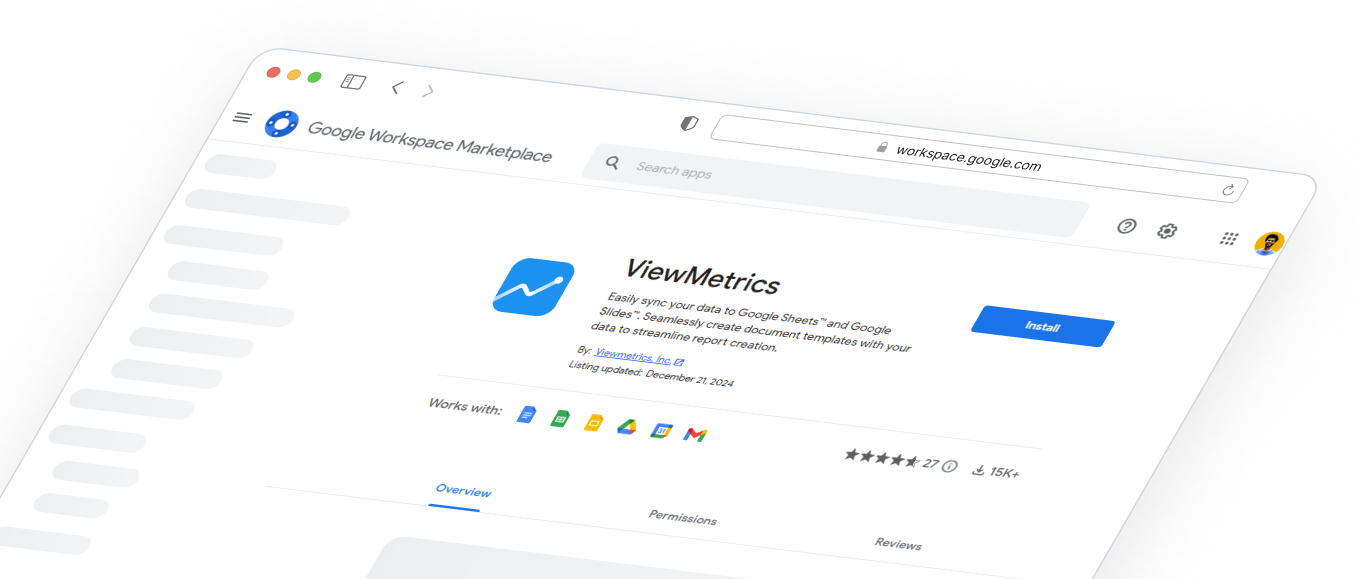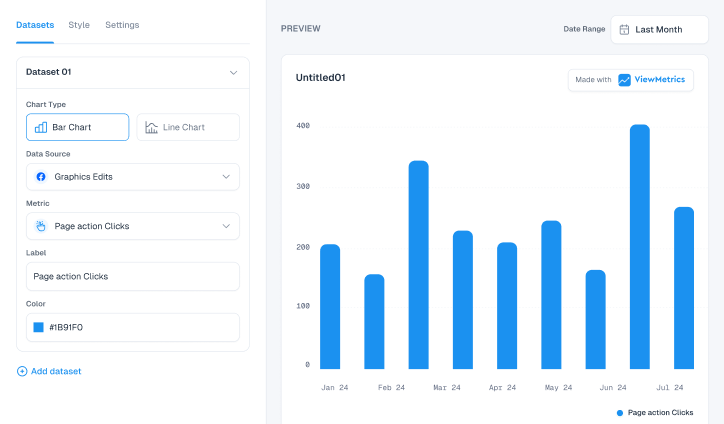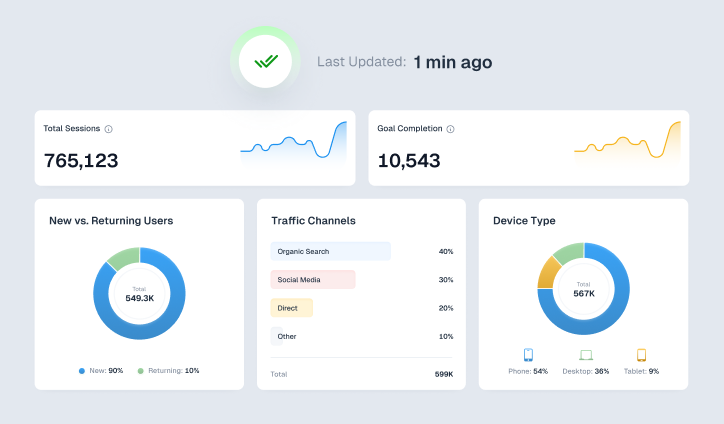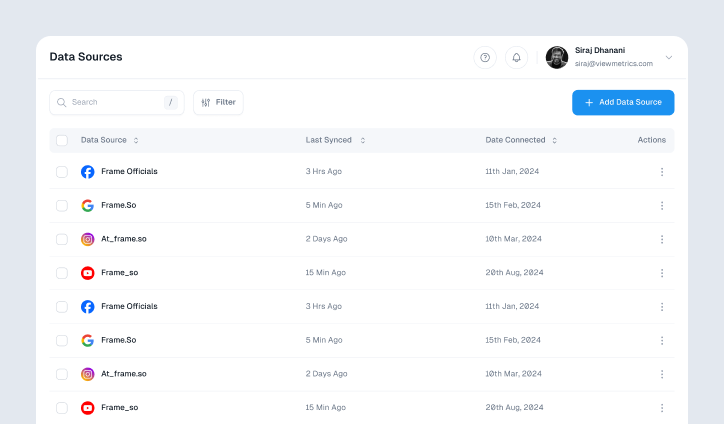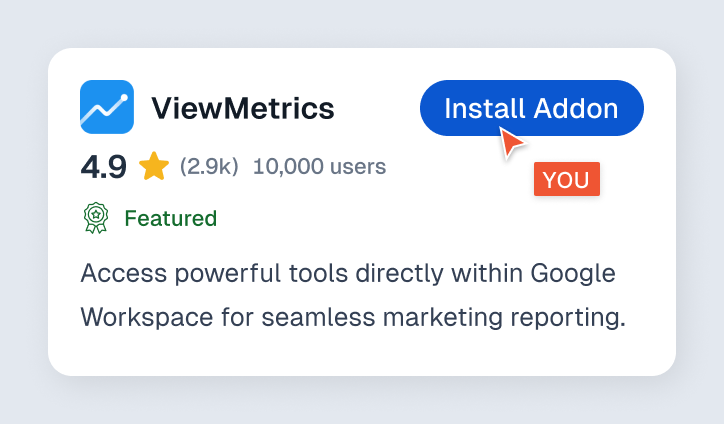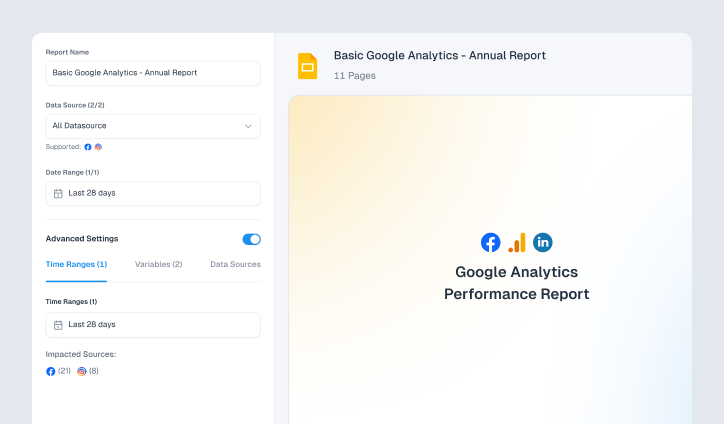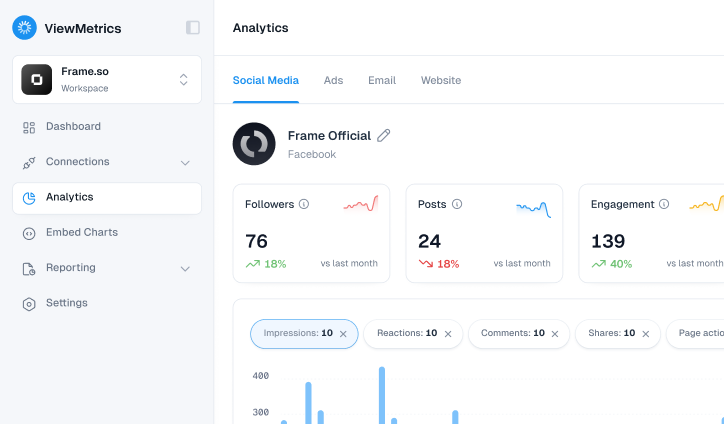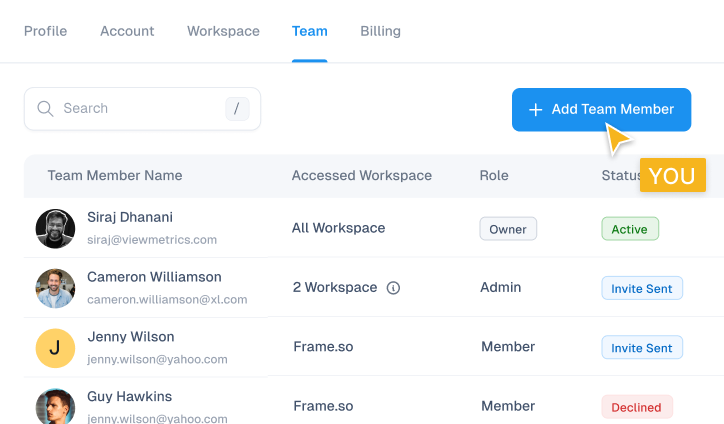Summary for the Blog
- SEM reporting tools collect, organize, and visualize Search Engine Marketing (SEM) data, such as click-through rates (CTR), cost per click (CPC), conversions, and ad spend.
- They help aggregate data from various ad platforms into one dashboard, visualize performance, automate reporting, and enable deep analysis for optimization.
- These tools allow agencies to demonstrate ROI to clients, optimize campaigns in real-time, track KPIs across channels, identify website issues, improve overall marketing strategy, save time, and align teams.
- The article lists and describes 15 top SEM reporting tools for 2026, including ViewMetrics, Google Ads, Google Analytics 4, HubSpot Ads, DashThis, and SEMrush.
SEM, or Search Engine Marketing, is where you blend paid search strategies with precise analytics tracking to reach relevant prospects quickly and in a targeted manner. In 2024, the US digital advertising spend surpassed $300 billion for the first time, and it is predicted that the global search engine market is going to reach $250 billion by 2025.
Despite businesses increasing their ad spends for better ROI, some marketers are still manually pulling data from Google Analytics, which results in delayed insights, misaligned budgets, and frustrated stakeholders.
Imagine if you could:
- See all your ad channels in one place
- Automate weekly client decks that auto‑update
- Flag underperforming keywords in real time
- Visualize campaign ROI with a single click
Everything in one place – this is where SEM reporting tools come into the picture!
What are SEM Reporting Tools?
With the help of SEM reporting tools, you can collect, organize, and visualize search engine marketing (SEM) data, like click-through rates (CTR), cost per click (CPC), conversions, and ad spend. So, instead of scrambling through spreadsheets or toggling between Google Ads and Analytics, you can view everything in one intuitive dashboard.
How do SEM Reporting Tools Help?
- Aggregate Data: These tools pull metrics from Google Ads, Bing Ads, Facebook Ads, LinkedIn Ads, and analytics platforms to one unified dashboard.
- Visualize Performance: They transform raw numbers into charts, tables, gauge widgets, and trend lines.
- Automate Reporting: These help in scheduling email or Slack reports, white‑label PDFs, and live dashboard links.
- Enable Deep Analysis: They can slice data by device, geography, time of day, and more to uncover optimization opportunities.
Why Should Agencies Get an SEM Reporting Tool?
These tools give agencies competitive edge and even lessen the manual workload by:
-
Demonstrating ROI to Clients
Clients expect transparent, data‑backed proof of performance. With a dedicated SEM reporting system, you can build marketing reports that showcase spend vs. revenue, cost per acquisition (CPA), and return on ad spend (ROAS) in branded, easy‑to‑digest dashboards. So, no more manual number-pulling week after week!
-
Optimizing SEM Campaigns in Real Time
When ad spend hits tens of thousands per month, even a 5% budget misallocation can cost hundreds of dollars per day. Digital analytics tools and SEM reporting platforms flag rising CPCs or dips in Quality Score so you can reallocate budget instantly.
-
Tracking KPIs Across Channels
Whether you’re focused on click-through rate, conversion rate, impression share, or lifetime value, a unified KPI dashboard shows how each metric trends over time. You’ll never miss a sudden drop in conversion rate or a spike in bounce rate again.
-
Identifying Website Issues
Website issues like landing page speed, broken links, or misconfigured UTM parameters can tank your paid traffic even before you can comprehend what’s happening. Integrations with technical‑SEO tools let you correlate on‑page performance with SEM spend, so you fix issues before they impact your bottom line.
-
Improving Overall Marketing Strategy
Armed with consolidated insights, you can run better growth marketing experiments, testing new ad copy, bid strategies, or audience segments, and measure their impact holistically across channels.
-
Saving Time and Effort
Agencies have reported noticing a reduction in time spent on prepping and making reports by switching to automated reporting workflows. The best SEM reporting tools can schedule dashboards and white‑label exports, keeping clients informed without spending late nights making spreadsheets.
-
Aligning Teams and Stakeholders
When everyone, from account executives to the C‑suite, uses the same live dashboards, communication gaps close. Everyone stays in the loop, so your strategy calls become about insights and action, not data reconciliation.
The 15 Best SEM Reporting Tools of 2026
Now that you know the need for getting an SEM reporting tool for your agency, it’s time to know which ones are the current top players in the market.
1. ViewMetrics
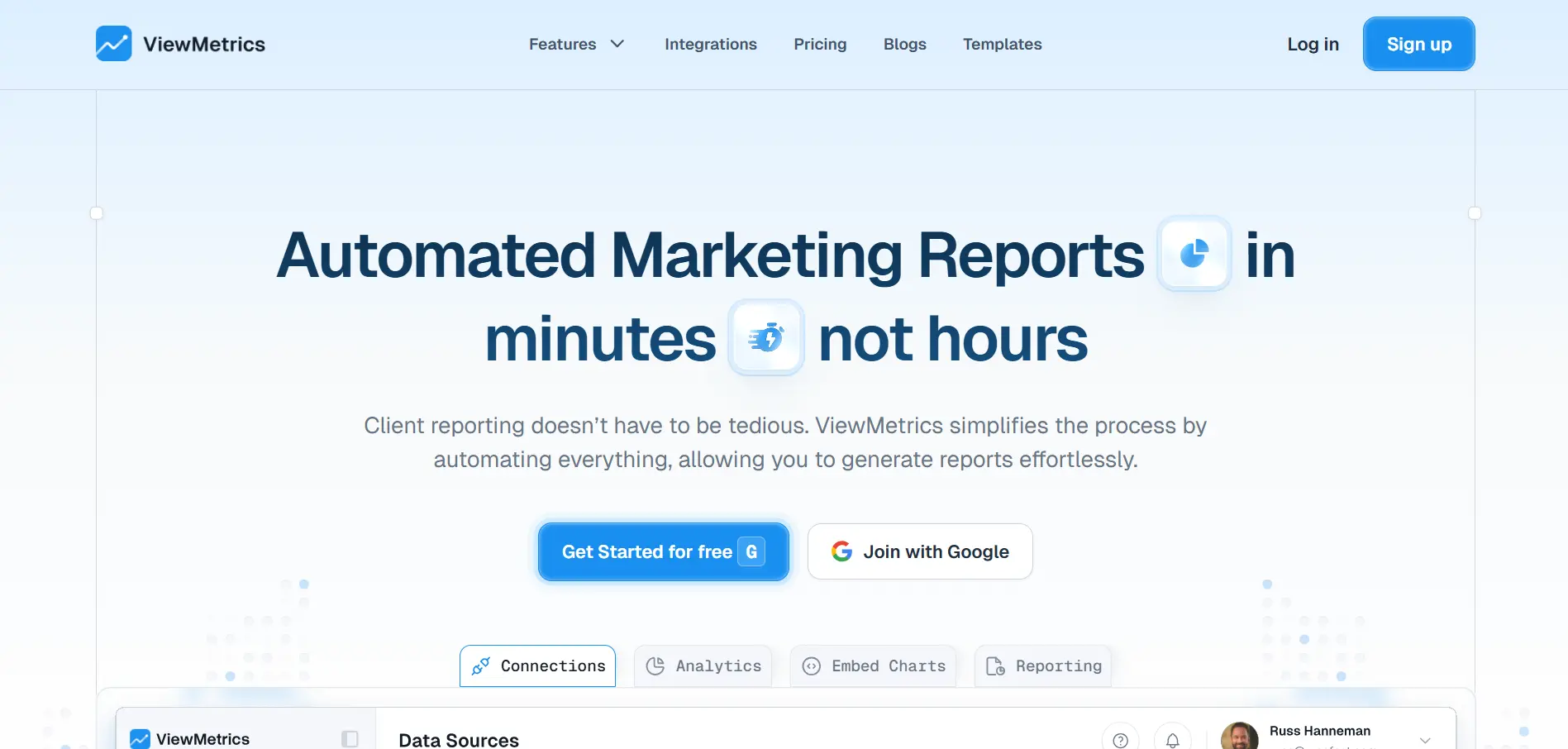
ViewMetrics is a purpose‑built automated reporting tool for agencies and marketers who demand both depth and ease. It pulls data from SEM channels and beyond, creating a single source of truth.
Key Features:
- Integrations: Google Ads, Bing Ads, Facebook Ads, LinkedIn Ads, Google Analytics 4.
- Custom Dashboards: Drag‑and‑drop widgets, branded themes, client‑specific layouts.
- Advanced Visualizations: Funnel charts, heatmaps for click‑time analysis, and budget pacing waterfalls.
- Automated Alerts: Email/Slack notifications for KPI thresholds (e.g., CPA > $50).
- White‑Label Reporting: PDF and PowerPoint exports with custom logos.
- Collaboration: User roles and permissions to control what each stakeholder sees.
Pricing:
- Starter: $19/month
- Professional: $39/month
- Team: $99/month
View All Your Marketing and Website Data - Instantly
Connect Instagram, Mailchimp, Google Analytics & more
Pre-built dashboards, no setup needed
Save hours on reporting every week
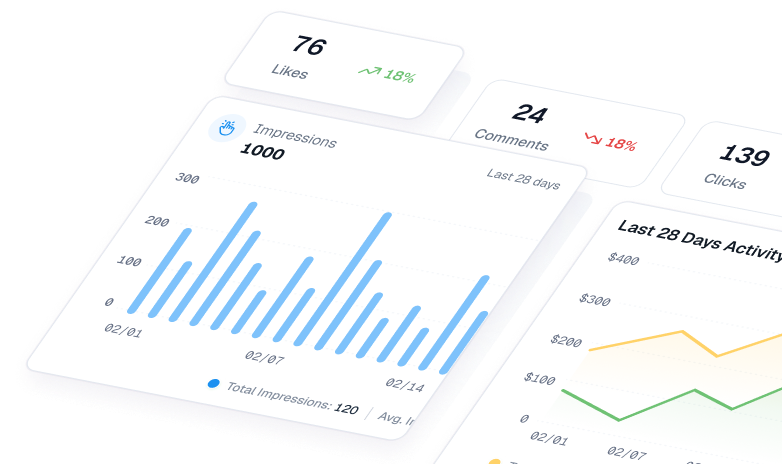
2. Google Ads
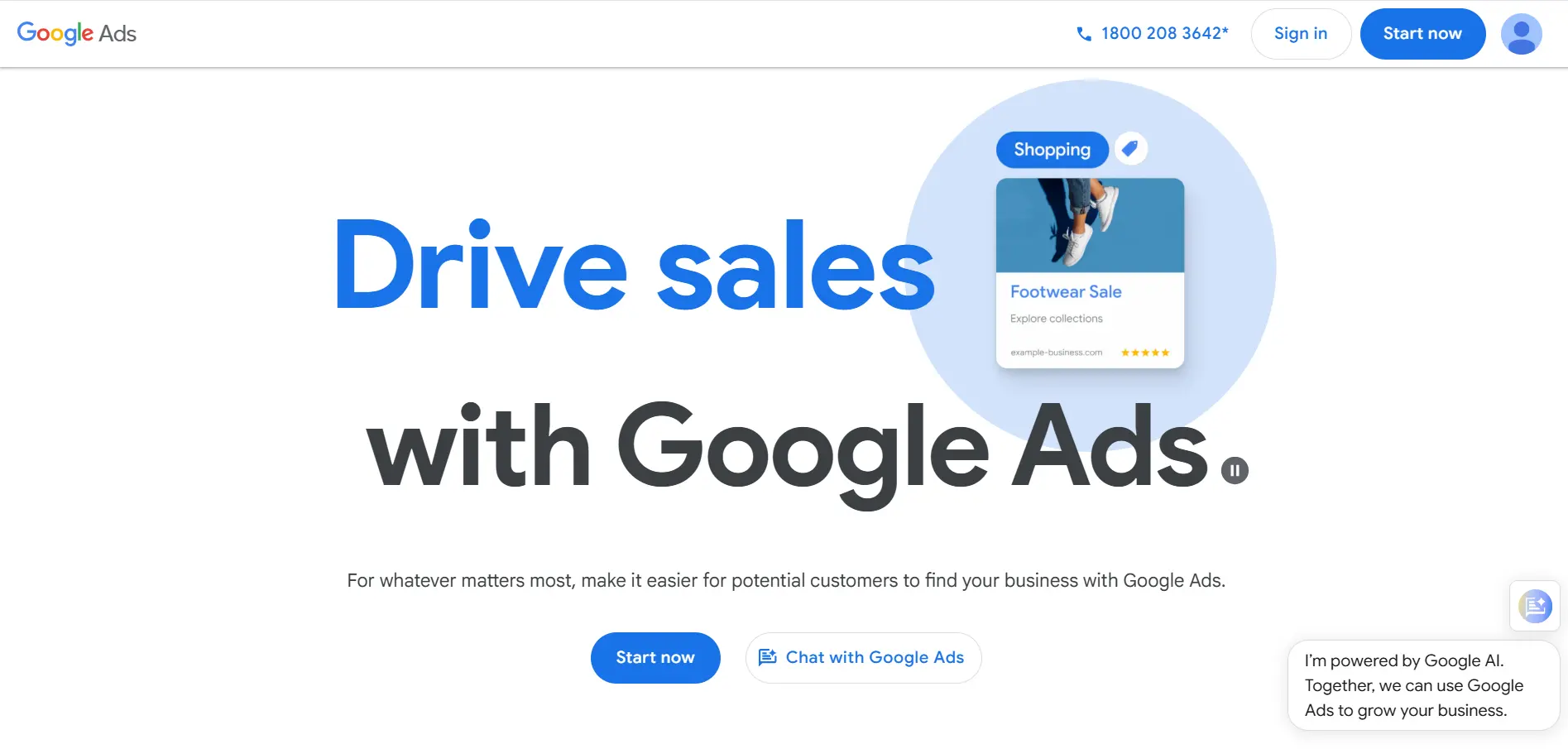
Directly within your ad account, Google Ads has robust reporting features, which are ideal for on‑the‑fly checks.
Key Features:
- Real‑time CTR, CPC, conversion tracking.
- Custom table reports with filters and segments.
- Automated rules (e.g., pause keywords if CPA > target).
- Export to CSV/PDF.
Pricing:
- Free, ad spend only
3. Google Search Console
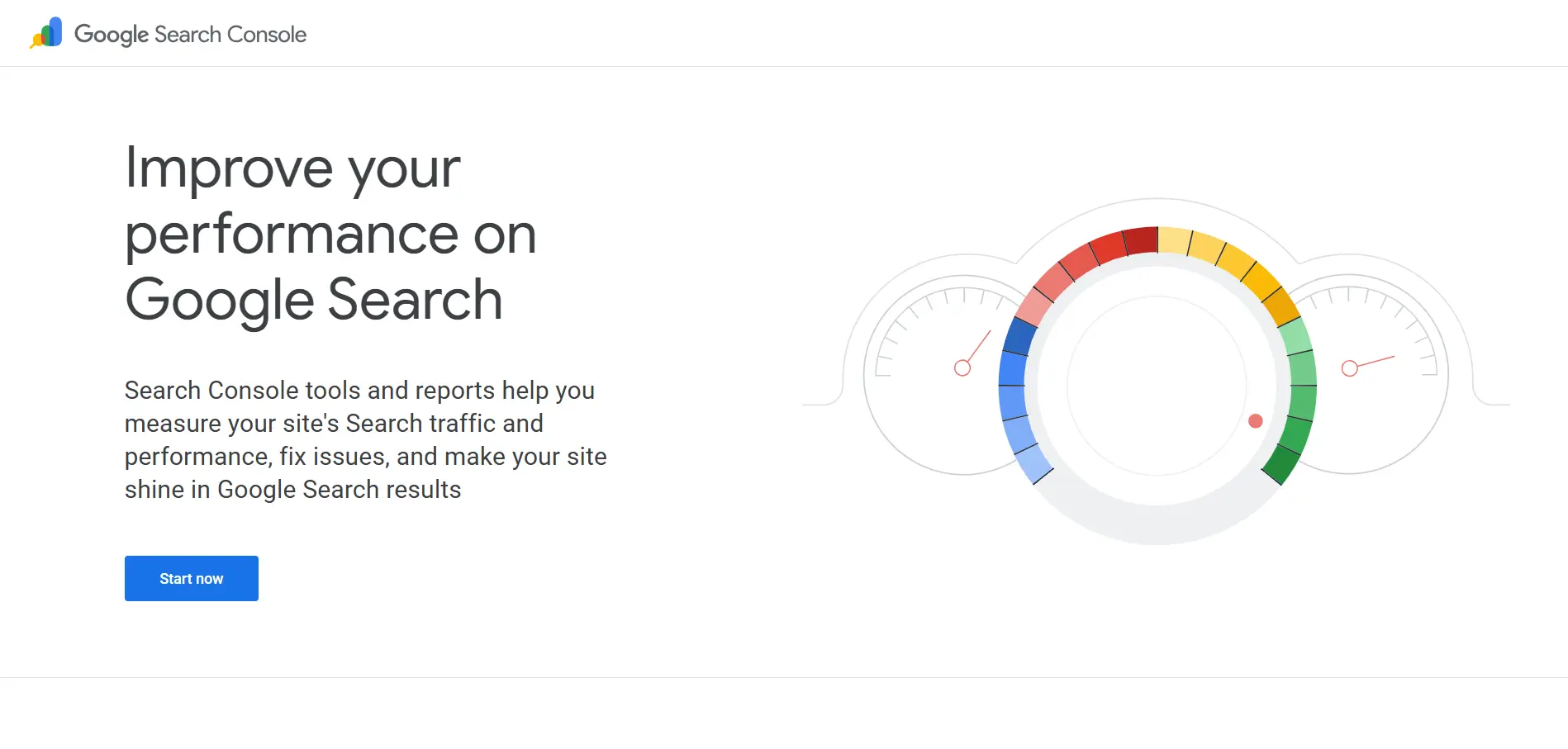
While focused on organic, Search Console is invaluable for SEM keyword research and issue detection.
Key Features:
- Query performance for clicks, impressions, and average position.
- Index Coverage reports for crawl errors.
- Core Web Vitals and mobile‑usability data.
- Integration with Data Studio for custom dashboards.
Pricing:
- Free
4. Google Analytics 4
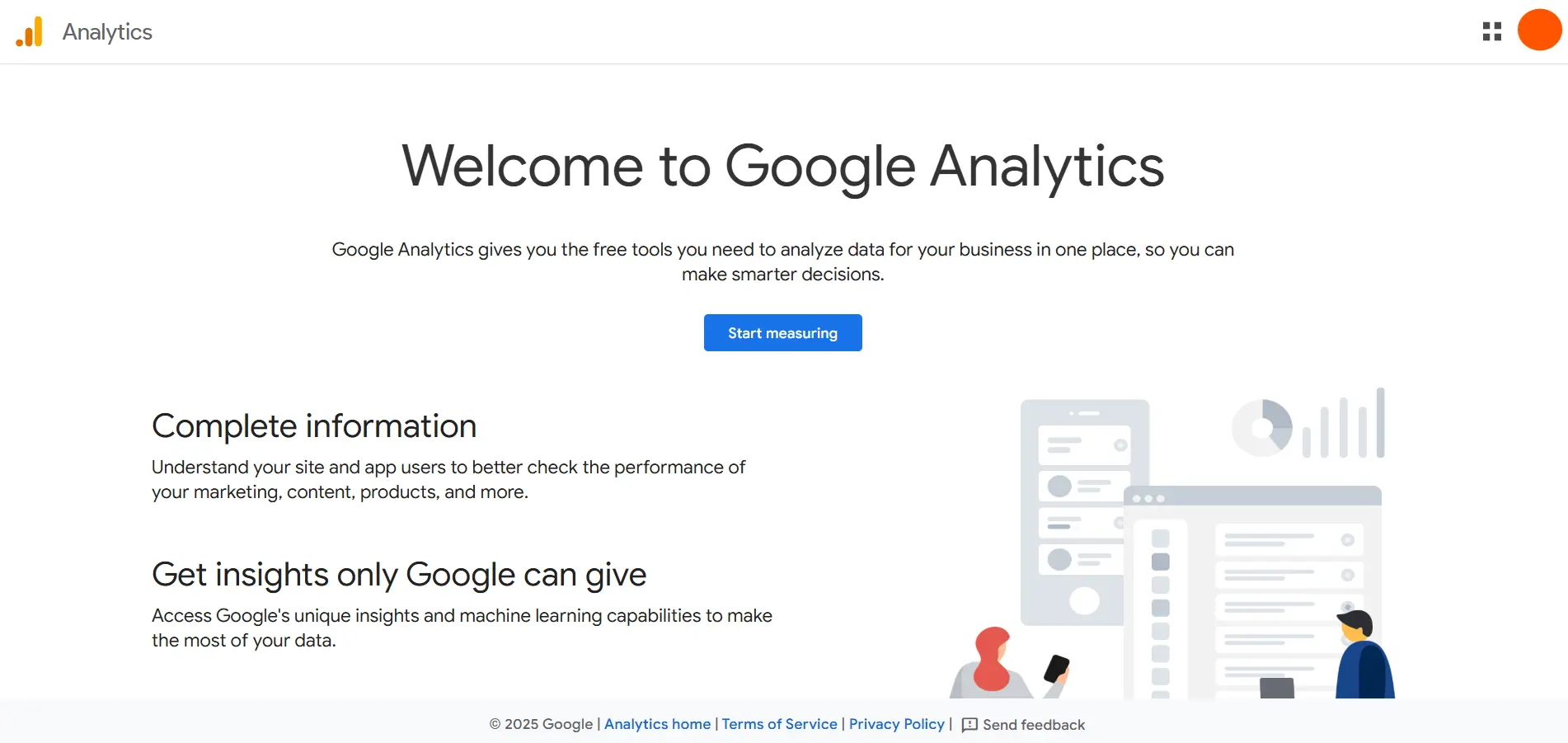
GA4’s event‑based model tracks every user interaction, critical for accurate SEM attribution.
Key Features:
- Track everything, form submissions and video plays to e‑commerce purchases.
- Funnel visualization and path analysis.
- Cross‑device and cross‑platform attribution models.
- BigQuery export for advanced analysis.
Pricing:
- Free
5. HubSpot Ads
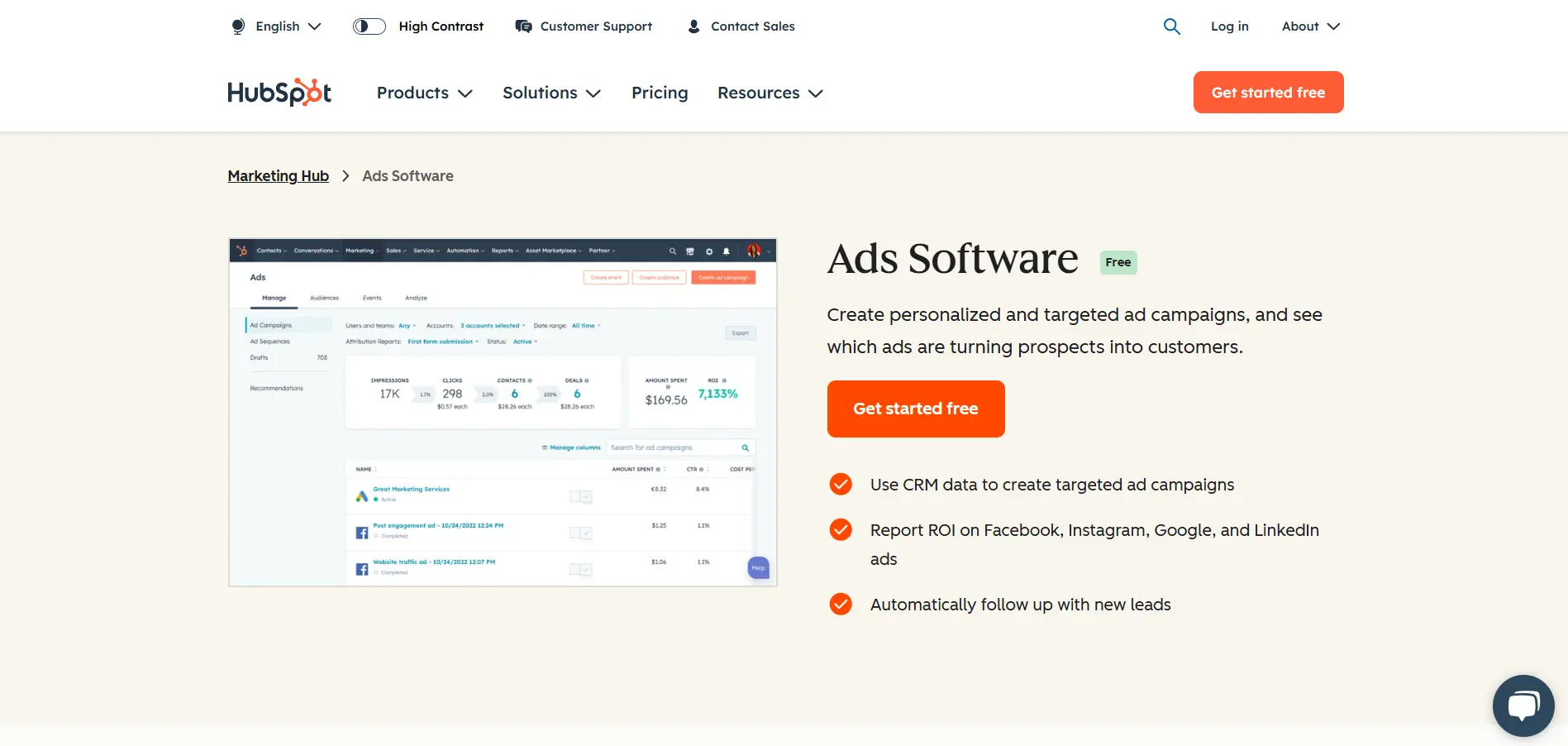
This SEM reporting tool is a CRM‑centric ad solution that ties every click back to contact records and deal pipelines.
Key Features:
- Syncs with multiple platforms, like Google, Facebook, and LinkedIn Ads.
- ROI per contact source, lifecycle stage attribution.
- A/B testing insights, audience creation from CRM lists.
- Automated lead scoring and segmentation.
Pricing:
- Includes basic free features, with paid plans starting at $9/month.
6. DashThis
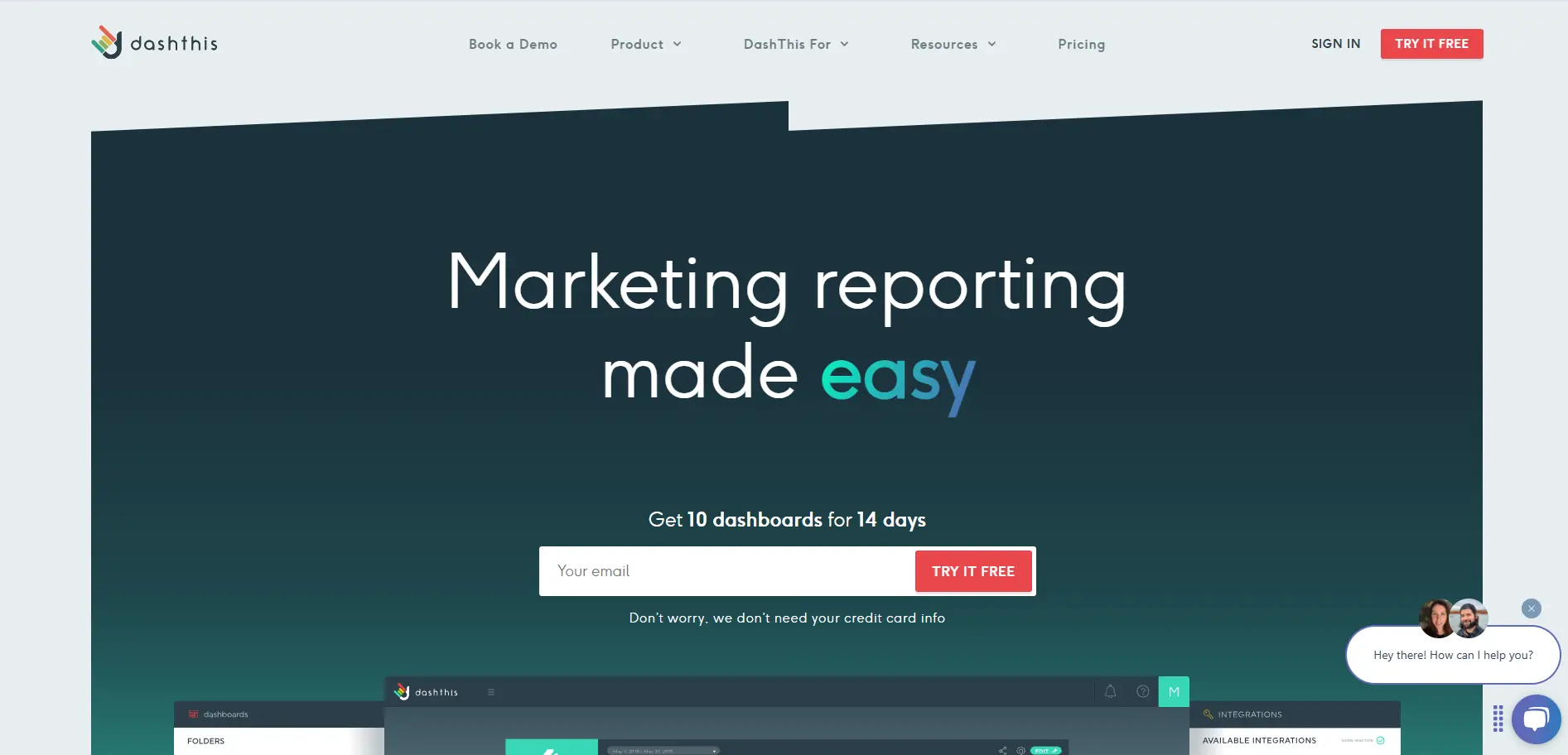
DashThis has an intuitive dashboard builder that covers 34 integrations, including SEM.
Key Features:
- Drag‑and‑drop editor, pre‑built SEM templates.
- Scheduled PDF/CSV exports and live links.
- KPI alerts via email or Slack.
- Multi‑user permissions and white‑label branding.
Pricing:
- Individual: $42/month
- Professional: $135/month
- Business: $264/month
7. Whatagraph
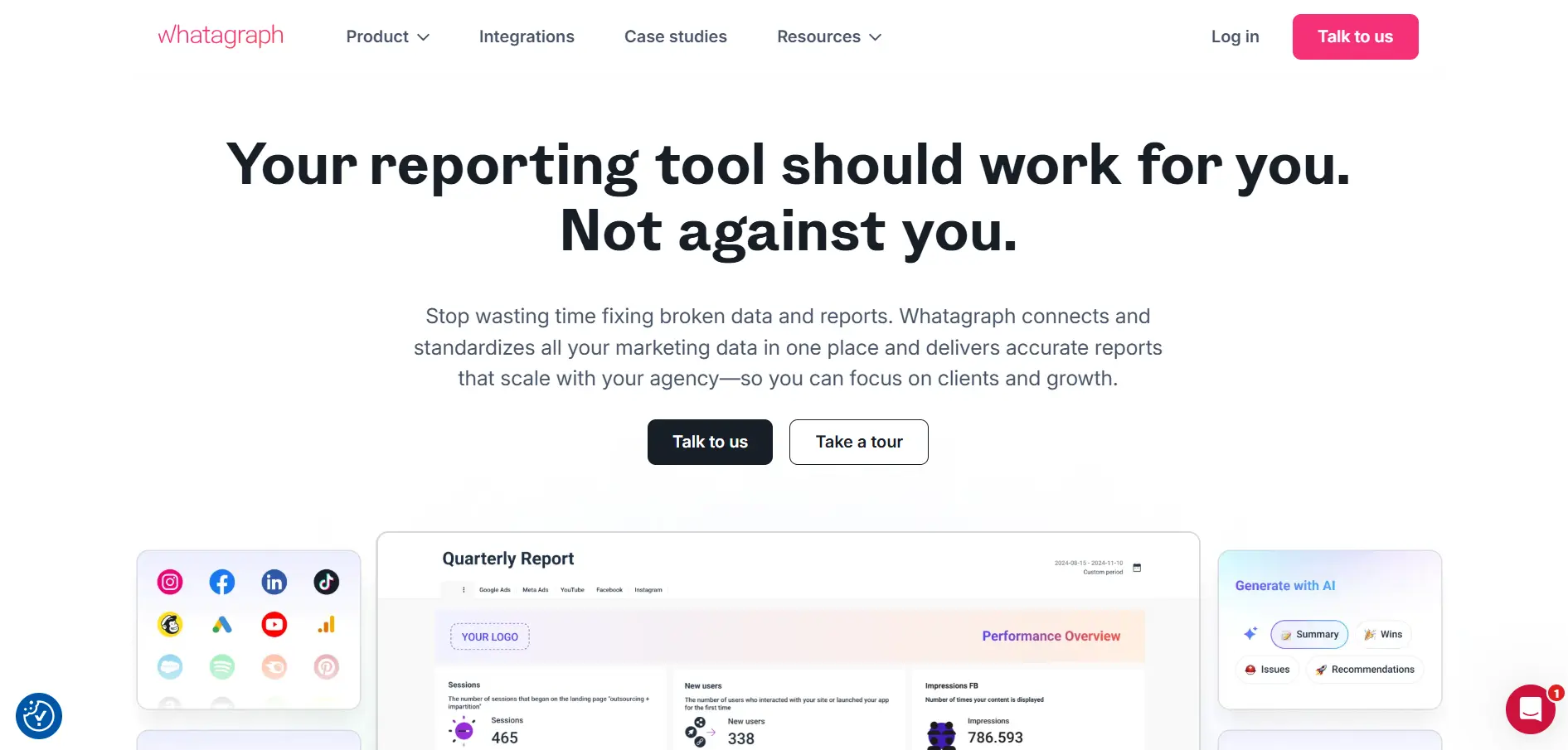
Built for agencies to create client‑ready reports in minutes, supporting SEM, social, and SEO.
Key Features:
- Real‑time data refresh, auto‑update widgets.
- Library of beautiful, industry‑specific templates.
- White‑label PDFs, branded live dashboards.
- Multi‑client management with user roles
Pricing:
- Professional: $199/month
- Premium: $299/month; custom pricing available for large marketing agencies and businesses
8. AgencyAnalytics
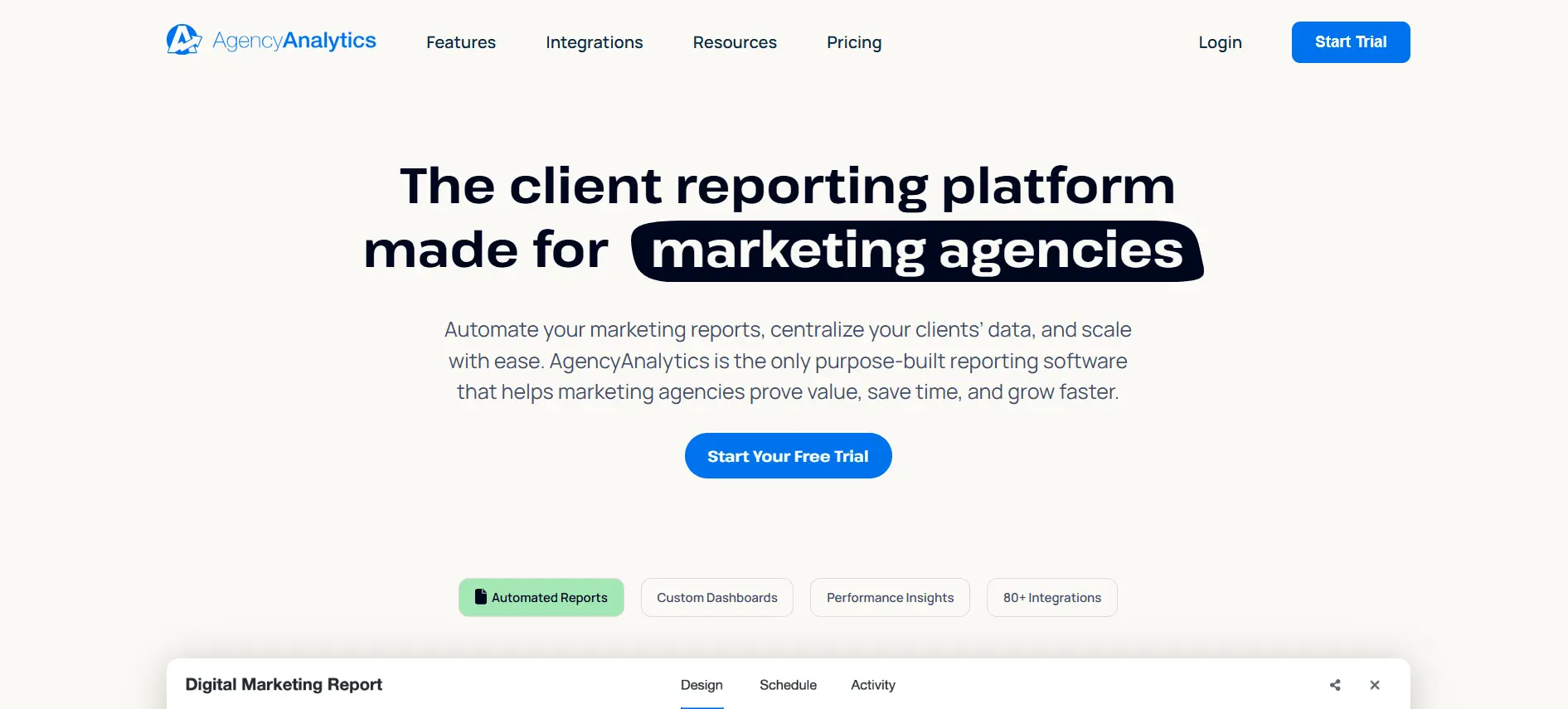
This SEM reporting tool is an all‑in‑one reporting suite for SEO, PPC, social media, and email campaigns.
Key Features:
- Daily data sync, client portals, and a mobile app.
- SERP rank tracking, backlink monitoring, and keyword analytics.
- Custom report scheduling and white‑label exports.
- Integrations with SEMrush, Ahrefs, and Majestic.
Pricing:
- Freelancer: $59/month (includes 5 clients)
- Agency: $179/month (includes 10 clients)
- Agency Pro: $349/month (includes 15 clients)
9. SEMrush
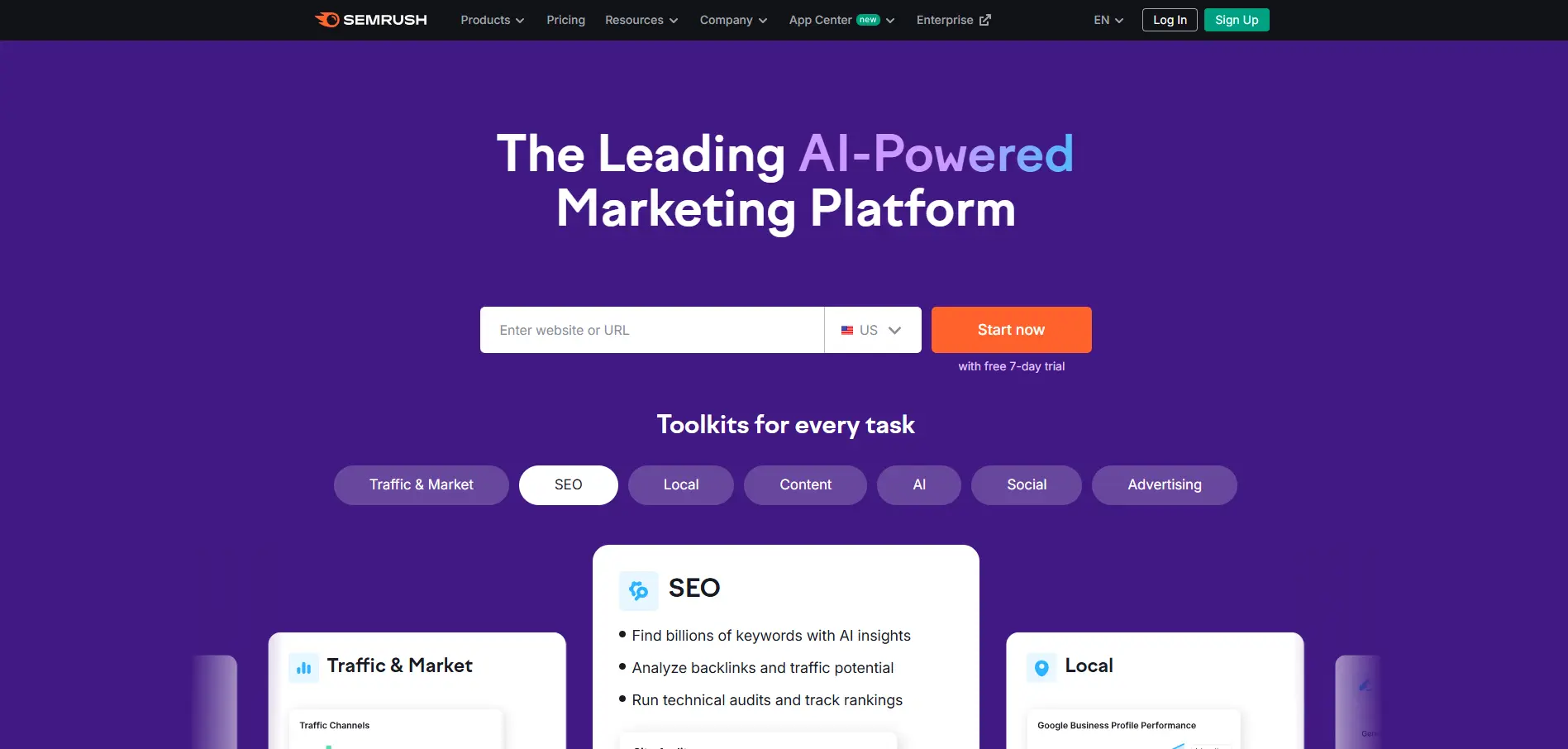
A veteran in the space, SEMrush offers end‑to‑end digital marketing insights, including your paid marketing efforts.
Key Features:
- PPC Keyword Tool with CPC maps and competition level.
- Ad Builder for copy testing and dynamic ads.
- Branded PDF reports and custom templates.
- Competitor ad history and gap analysis.
Pricing:
- Pro: $117.33/month
- Guru: $208.33/month
- Business: $416.66/month
10. Ahrefs
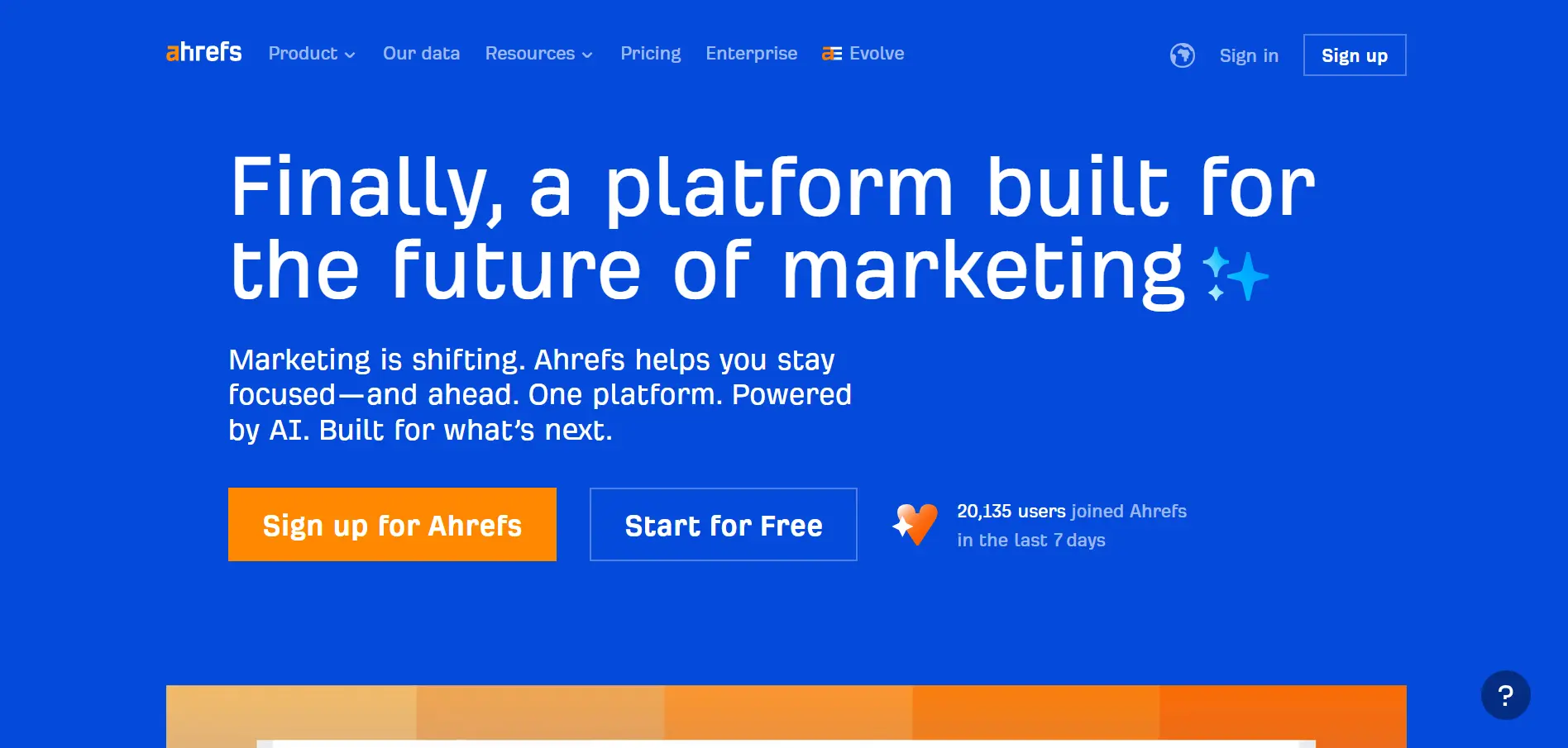
Renowned for SEO, Ahrefs also provides solid PPC data, especially for competitive research.
Key Features:
- Keywords Explorer shows CPC and volume by region.
- Site Audit for landing page health.
- Content Gap analysis to uncover new paid keywords.
- Exportable charts and tables.
Pricing:
- Lite: $108/month
- Standard: $208/month
- Advanced: $374/month
11. SpyFu
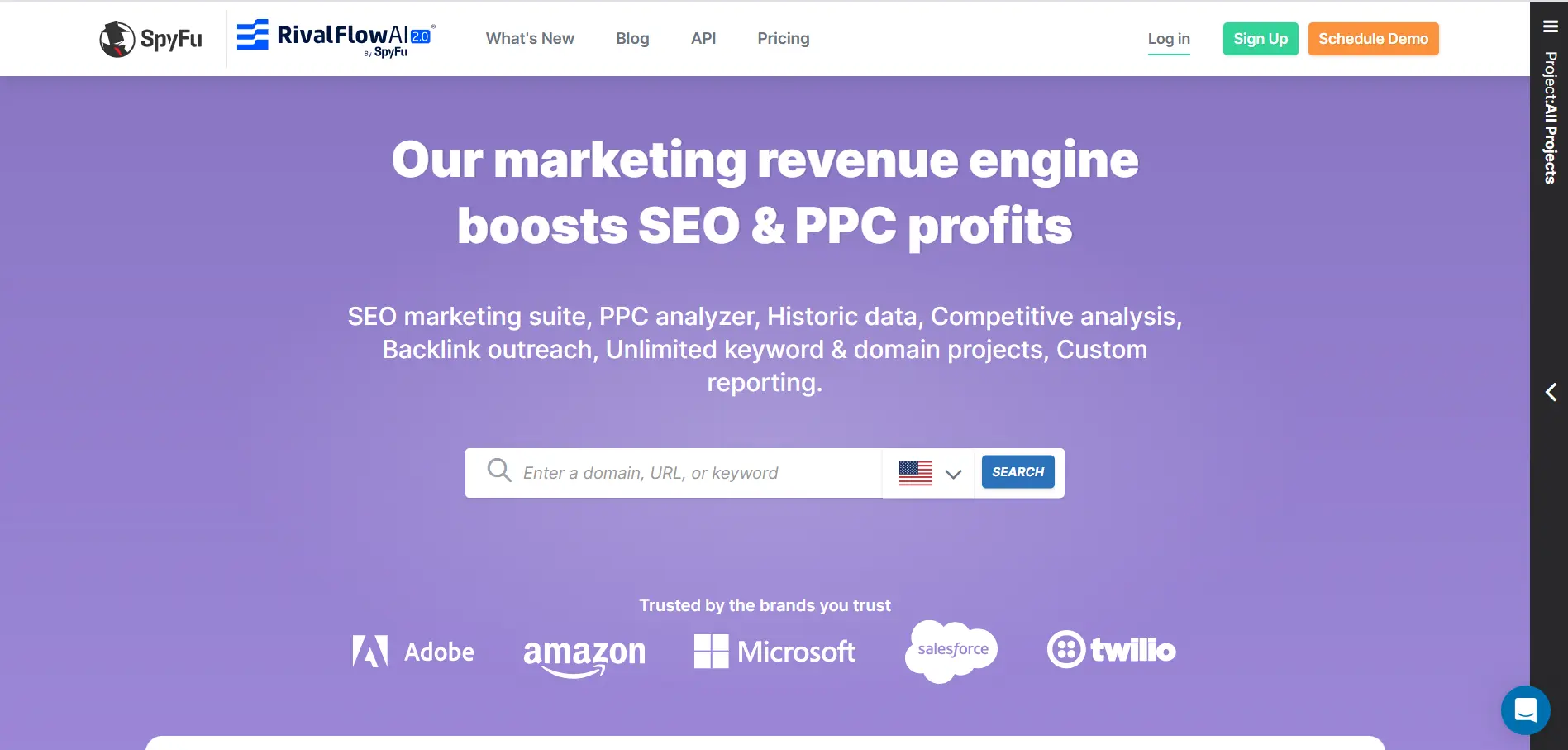
This SEM reporting tool is best used for uncovering your rival’s SEM strategies.
Key Features:
- Historical ad spend, keyword overlap, and ad copy archives.
- Domain vs. Domain comparisons and SERP rank tracking are available.
- Downloadable CSVs and white‑label reporting.
Pricing:
- Basic: $33/month
- Professional: $58/month
12. SE Ranking
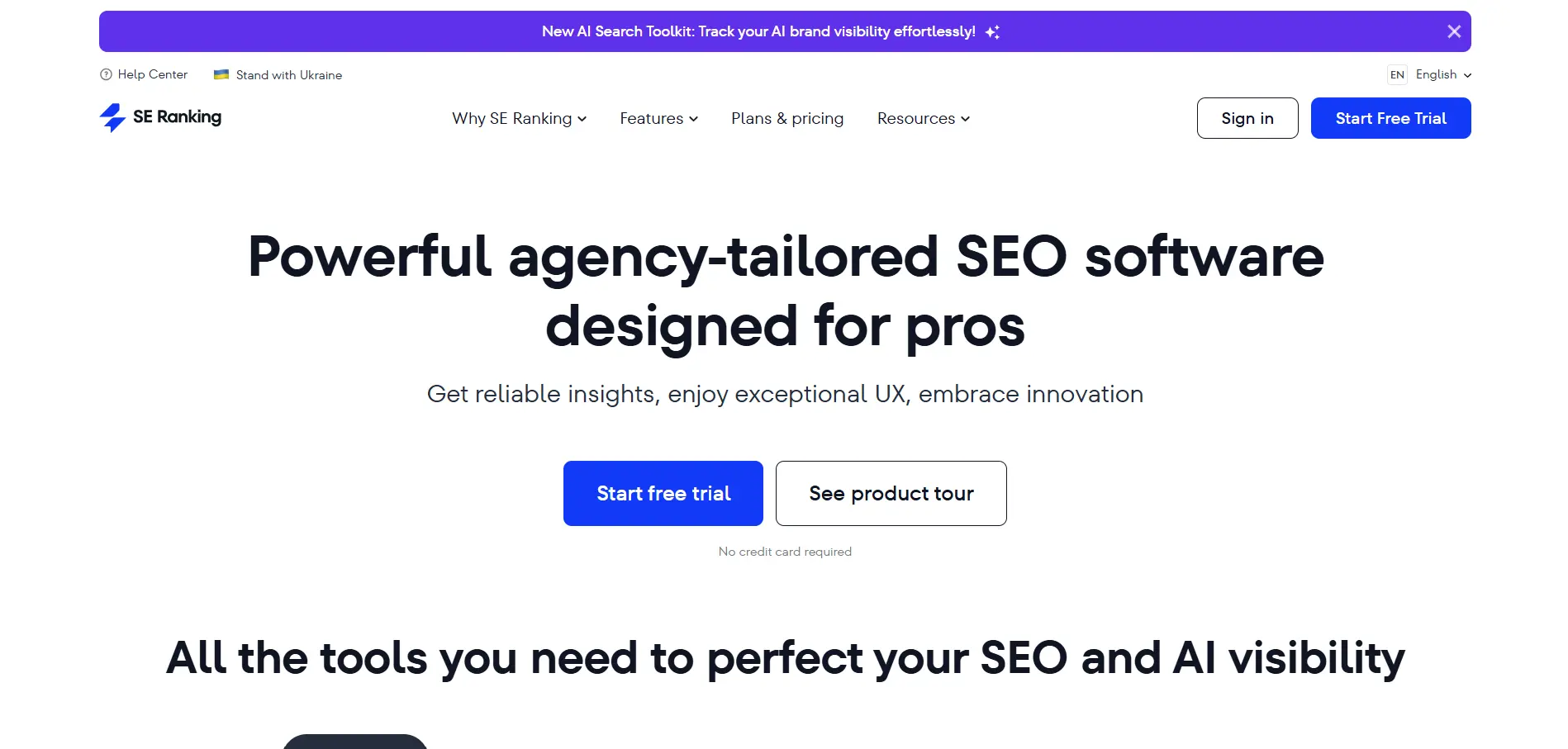
An SEO platform with an integrated PPC reporting module.
Key Features:
- Rank Tracker, Keyword Grouper, and competitive research.
- PPC module for analyzing spend and ad copy.
- Automated, scheduled report delivery.
- White‑label client access.
Pricing:
- Essential: $52.00/month
- Pro: $95.20/month
- Business: $207.20/month
13. Optmyzr
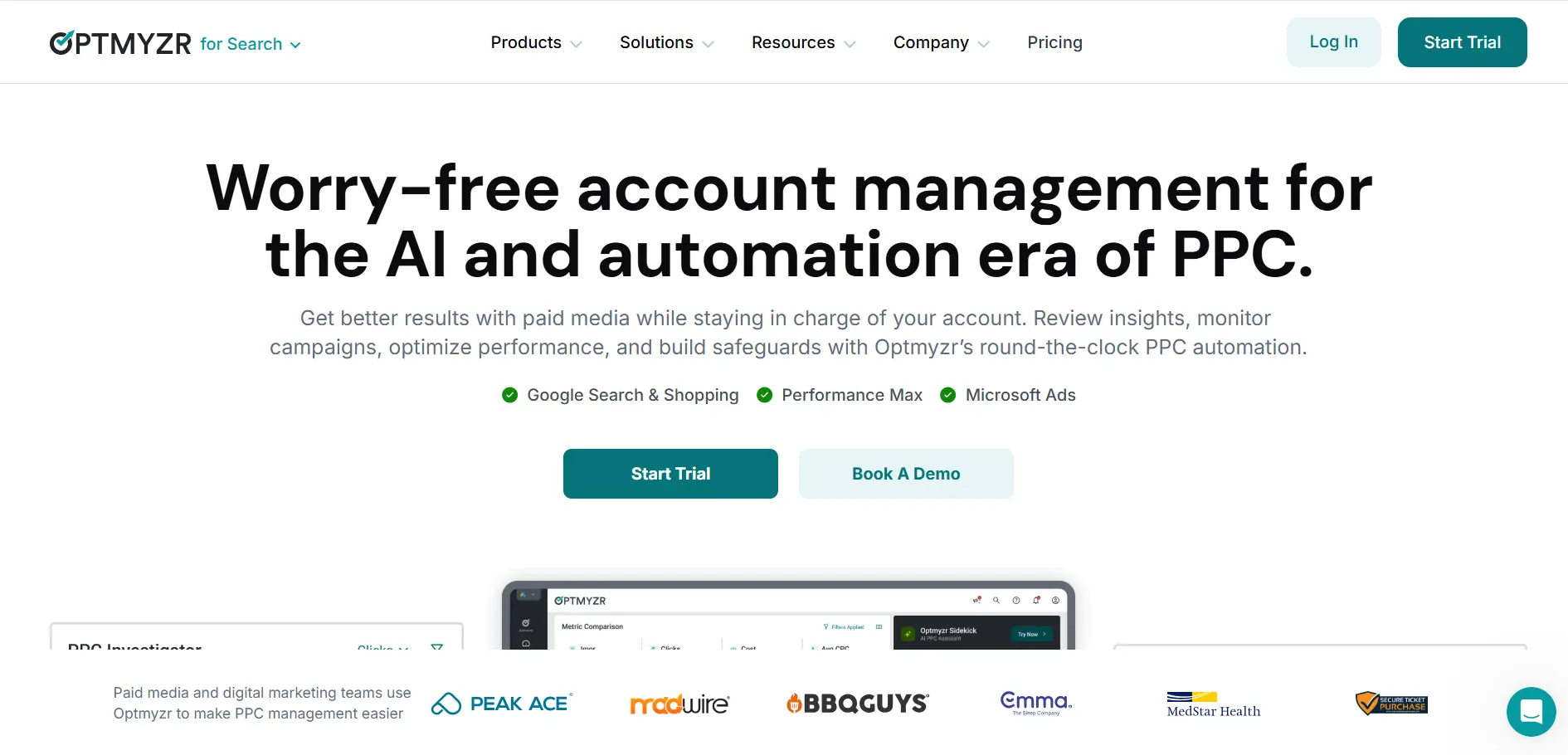
An automation powerhouse designed specifically for SEM managers.
Key Features:
- Make one‑click bid adjustments and budget allocation.
- Pre‑built and custom scripts library.
- Visual performance dashboards and optimization suggestions.
- Hourly data sync for near‑real‑time insights.
Pricing:
- Essentials: $209/month
- Premium: $272/month; custom pricing option available for enterprises
14. GTmetrix
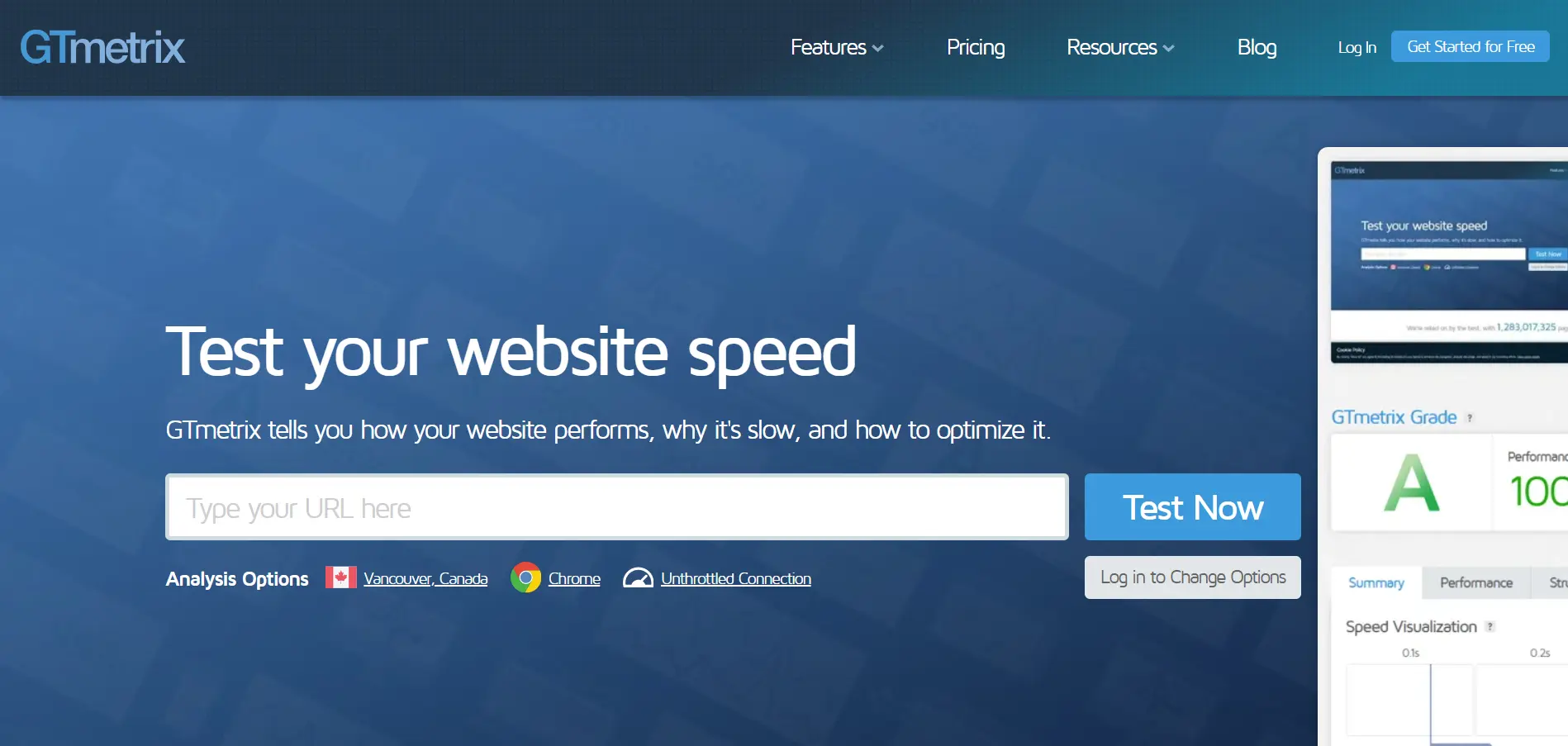
A performance‑testing tool that helps you optimize landing pages tied to SEM campaigns.
Key Features:
- Waterfall charts, core web vitals, and YSlow scores.
- Scheduled tests, performance trend graphs.
- Recommendations for image optimization, caching, and minification.
Pricing:
- Individual: Plans starting from $4.25/month
- Business: Plans starting from $72.50/month; custom pricing available
15. Screaming Frog
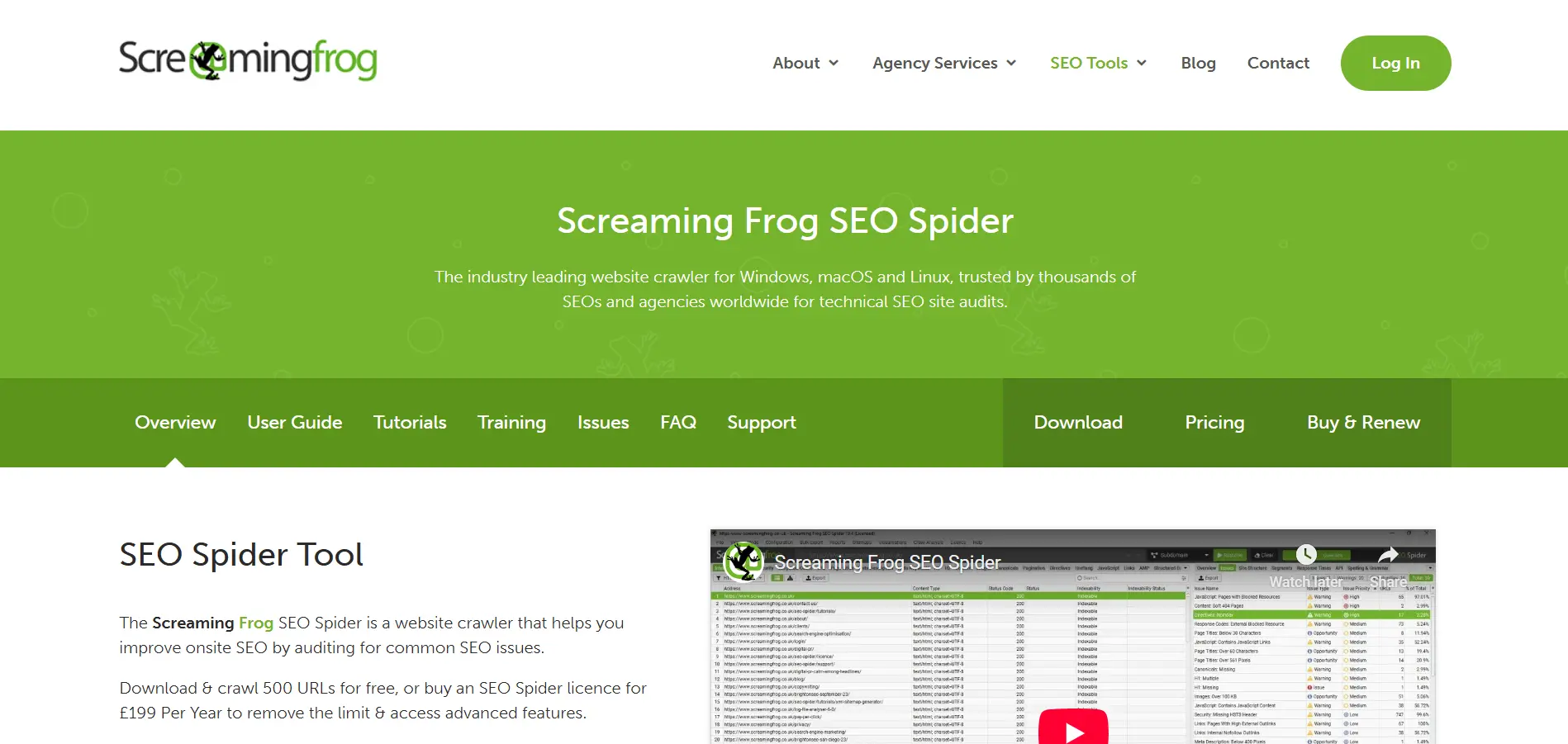
A desktop crawler that uncovers technical SEO issues impacting your paid landing pages.
Key Features:
- JavaScript rendering, metadata analysis, and broken link detection.
- Redirect mapping, hreflang audit, and XML sitemap generation.
- Integration with GA and GSC for deeper SEM insights.
Pricing:
- Free up to 500 URLs
- Licensed Version: $279/year
How to Choose the Right SEM Reporting Tool?
As you have seen, our list contains some of the best SEM reporting tools. But amid the range of options available to you, which one is the right tool?
Picking the perfect tool comes down to matching features to your needs:
-
Integration Capabilities
Does it connect seamlessly to Google Ads, Bing Ads, GA4, and any other platforms you use? This is important because automatic data sync avoids manual uploads, saving you time.
-
Customization & Flexibility
Look for drag‑and‑drop dashboards, custom filters, and white‑label templates. This is important so you can tailor every report.
-
Ease of Use
The right SEM reporting tool should also have a convenient interface so that you don’t spend the initial days just figuring out how to use it. Having a clean UI and intuitive navigation is crucial, especially if you’re sharing with executives or clients who aren’t data experts. Along with this, a marketing dashboard is also useful for tracking progress.
-
Automated Reporting
The best SEM reporting tools will let you schedule automated reporting via email, PDF, or live dashboard links, saving you hours each week.
-
Visualization Options
Ensure that your tool has enough options in terms of visualization. Strong graph libraries (funnels, line charts, heatmaps) make spotting trends and anomalies faster and more persuasive.
-
Cost & Scalability
Compare per‑client vs. unlimited campaigns, seat‑based vs. usage‑based pricing. This gives you peace of mind that your tool is growing with you, without breaking the bank.
-
Support & Training
Another thing to look out for when purchasing an SEM reporting tool is the support and training it provides while onboarding. Comprehensive documentation, video tutorials, and responsive customer success teams minimize onboarding friction.
-
Data Accuracy & Reliability
Inaccurate CPC or conversion data can waste your ad budget. Check user reviews and case studies for real‑world reliability.
-
Trial Period or Demo
Always test in your environment. A 14‑day trial or personalized demo reveals whether the UX and metrics align with your workflow.
How ViewMetrics Powers Your SEM Workflow?
As a leading automated reporting tool, ViewMetrics bridges every gap in SEM reporting:
- Unified Data: Combine all your valuable data from Google Ads, Facebook Ads, LinkedIn Ads, and GA4 in real time.
- Actionable Dashboards: Visualize CTR, CPC, conversions, and ROAS with customizable widgets.
- Scheduled Delivery: Automate weekly reports to inboxes or Slack channels with no manual exports.
- White‑Label Exports: Generate branded PDFs and PowerPoints that resonate with clients.
- Scalability: Get a tool that grows with you! You can easily upgrade from our starter plan to enterprise as your organization grows.
By centralizing all your SEM metrics, ViewMetrics lets you spend less time compiling data and more time driving strategy, delivering rock‑solid insights to clients and stakeholders every single week.
Conclusion
Effective SEM isn’t just about bidding higher or writing new ad copy. It’s about understanding performance and making data‑driven decisions. The right SEM reporting tool transforms disjointed metrics into a cohesive narrative, helping you:
- Prove ROI across every campaign.
- Optimize bids and budgets in real time.
- Automate time‑consuming report prep.
- Surface growth opportunities across channels.
Whether you choose an all‑in‑one suite like ViewMetrics, native platforms like Google Ads and GA4, or any other specialized tools from our guide, make sure to look for clarity, automation, reliability, and ease of use.
The best way to choose the right SEM reporting tool is by testing your top options, relying on free trials, and picking the solution that best aligns with your budget and goals. Then watch your SEM performance and profits soar!
View All Your Marketing and Website Data - Instantly
Connect Instagram, Mailchimp, Google Analytics & more
Pre-built dashboards, no setup needed
Save hours on reporting every week
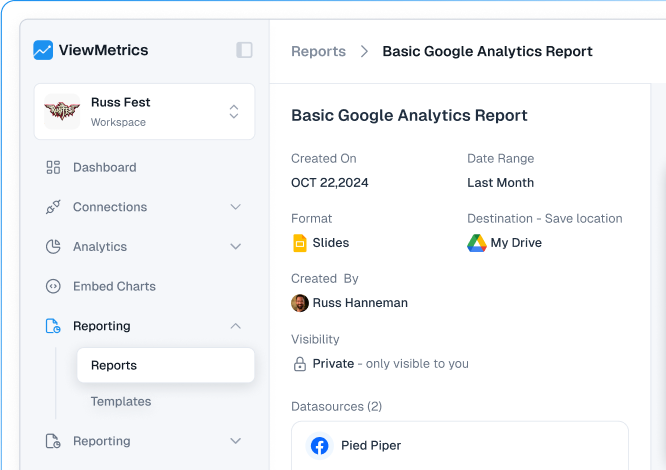
Frequently Asked Questions About SEM Reporting Tools
1. Are SEM reporting tools suitable for small businesses?
Yes, in fact, many platforms offer scalable pricing and simplified dashboards. So, you can start from a basic starter pack and then upgrade as your business grows.
2. Can I track ROI with SEM reporting tools?
Yes, with the right SEM reporting tool, you can easily track your ROI. Consolidate spend, clicks, and conversion data and even calculate ROI per keyword, ad group, or campaign for a precise view of what drives profit.
3. What is SEM in digital marketing?
SEM, or Search Engine Marketing, combines paid search tactics like pay‑per‑click ads with analytics tracking. It’s a fast, targeted way to reach prospects actively searching for your products or services.

